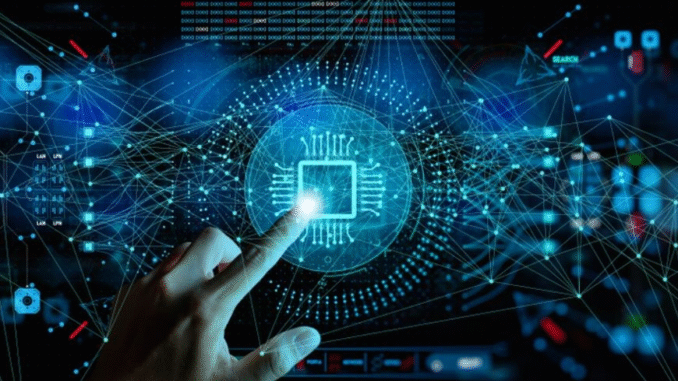
Top 5 Breakthrough Technologies Transforming the World in 2025
Technology has always played a pivotal role in shaping human civilization. From the printing press to the internet, each wave of innovation has transformed how we live, work, and connect. As we step further into 2025, several groundbreaking technologies are making an even deeper impact across industries and daily life. These innovations aren’t just enhancing convenience—they are redefining entire systems and opening doors to a smarter, more connected future.
In this article, we’ll explore the top 5 breakthrough technologies in 2025 that are transforming the world as we know it.
1. Artificial Intelligence (AI) and Generative Models
Artificial Intelligence is no longer just a concept from sci-fi movies. In 2025, AI has become a mainstream force in industries ranging from healthcare and finance to entertainment and customer service. One of the most notable advancements in AI this year is the evolution of generative AI models—systems capable of creating human-like content, such as text, images, videos, music, and even code.
Real-World Applications:
- Healthcare: AI is helping doctors diagnose diseases faster and more accurately by analyzing medical imaging and patient data.
- Education: Personalized learning experiences powered by AI tutors are reshaping classrooms and online courses.
- Business Operations: Companies use AI-driven chatbots, data analysis tools, and automation to streamline customer service and decision-making.
Why It’s a Game-Changer:
Generative AI allows machines to think creatively, blurring the lines between human and machine output. It’s enabling faster content creation, automating repetitive tasks, and providing intelligent solutions in real time.
2. Quantum Computing
Quantum computing, long considered a futuristic concept, is beginning to deliver tangible results in 2025. Unlike classical computers, which use bits (0 or 1), quantum computers use qubits that can exist in multiple states simultaneously. This allows for processing speeds and problem-solving capabilities far beyond today’s most powerful supercomputers.
Key Breakthroughs:
- Drug discovery: Pharmaceutical companies are using quantum simulations to discover and test new drugs faster and at lower costs.
- Logistics and Supply Chain: Quantum algorithms are optimizing routes and reducing waste in complex global supply networks.
- Climate modeling: Researchers are using quantum systems to simulate atmospheric changes and develop better climate solutions.
Why It’s a Game-Changer:
Quantum computing has the potential to solve complex problems in seconds that would take traditional computers thousands of years. It will revolutionize data encryption, research, and innovation across sectors.
3. 5G and Emerging 6G Networks
The deployment of 5G technology has already begun to reshape communication, but 2025 marks the transition toward early 6G trials. These next-generation mobile networks offer ultra-low latency, blazing-fast speeds, and the capacity to connect billions of devices.
Impact Areas:
- Autonomous vehicles: 5G/6G networks enable real-time vehicle-to-vehicle and vehicle-to-infrastructure communication.
- Remote healthcare: Telemedicine has advanced with the support of reliable, high-speed connections that allow real-time remote surgeries and diagnostics.
- Smart cities: IoT devices powered by 5G/6G are creating more efficient and responsive urban environments, from traffic control to waste management.
Why It’s a Game-Changer:
With the world becoming more interconnected, 5G and 6G provide the backbone for innovations like smart infrastructure, edge computing, and immersive virtual experiences.
4. Extended Reality (XR): Virtual, Augmented, and Mixed Reality
Extended Reality (XR) refers to a mix of Virtual Reality (VR), Augmented Reality (AR), and Mixed Reality (MR) technologies. In 2025, XR is no longer limited to gaming—it’s being used for education, training, healthcare, real estate, and more.
Use Cases:
- Education and Training: XR simulations help medical students, pilots, and factory workers train in safe, immersive environments.
- Retail and E-Commerce: AR allows consumers to try on clothes virtually or place furniture in their homes before buying.
- Mental Health Therapy: VR environments are used to treat PTSD, anxiety, and phobias through immersive exposure therapy.
Why It’s a Game-Changer:
XR is changing how we interact with digital content, bringing new levels of engagement and immersion. As hardware becomes more affordable and user-friendly, XR will become a part of daily life for millions.
5. Green Tech and Clean Energy Innovations
Climate change remains one of the biggest global challenges, and in 2025, technology is at the heart of the fight for a sustainable future. From renewable energy advancements to carbon capture technologies, green tech is reshaping energy production and consumption.
Noteworthy Innovations:
- Next-gen solar panels: More efficient, flexible, and affordable than ever, solar energy is being widely adopted by households and industries.
- Battery storage: Advanced lithium-silicon and solid-state batteries are improving energy storage for electric vehicles and smart grids.
- Carbon removal: Direct air capture and algae-based carbon-absorbing systems are helping reduce greenhouse gases at scale.
Why It’s a Game-Changer:
These technologies are vital for reducing dependence on fossil fuels and meeting international climate goals. They also open up new economic opportunities in green jobs and sustainable industries.
Honorable Mentions
While the five technologies above are making the biggest waves, other innovations are also worth noting in 2025:
- Biotechnology: Gene editing (CRISPR) is being refined for more precise and ethical applications in agriculture and medicine.
- Edge Computing: Decentralized processing closer to the data source is reducing latency and improving speed across industries.
- Robotics: Smarter, more adaptive robots are being integrated into homes, hospitals, and manufacturing environments.
Final Thoughts
The year 2025 is shaping up to be a landmark period for technological innovation. The convergence of AI, quantum computing, next-gen networks, XR, and green tech is not only solving today’s problems but also unlocking possibilities we never imagined. These breakthroughs are redefining how we live, work, learn, and protect our planet.
As individuals, businesses, and governments adapt to these new technologies, staying informed and adaptable is crucial. Embracing innovation with responsibility will be the key to ensuring that these advances lead to a more equitable, efficient, and sustainable world.